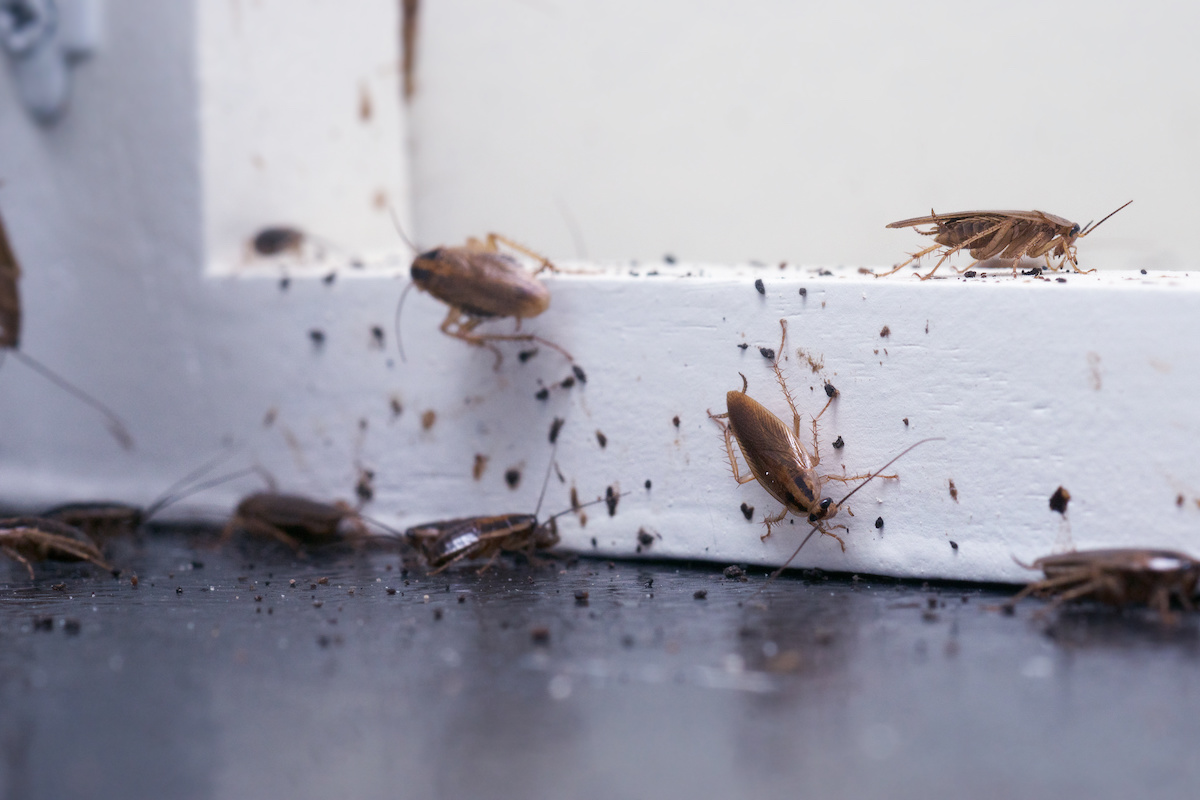
Tips For Preventing Pest Problems Around Your House
There are few things more uncomfortable and upsetting in life than finding a pest infestation in your house. These pests can seriously harm your furniture, clothes, and health in addition to being uncomfortable and repulsive. Cockroaches, spiders, ants, and termites are just a few of the vermin that can harm your house and spread disease. Here are ten tips for preventing pest problems around your house.
Keep it clean
This one should go without saying, but a clean home is considerably less inviting and welcoming to bugs. A clean home is much less inviting and welcoming to bugs, which should go without saying.
Every day, wash the dishes and remove any food particles from the sink. Every day, clean the counters and surfaces in the kitchen. To store food and beverages, use glass or plastic containers with tight-fitting lids. A schedule for sweeping, mopping, and vacuuming should be created. Keep trash bin lids locked and empty them frequently. Get rid of weeds and maintain a mowed lawn. Regularly trim trees and shrubs to keep them from touching the house. Maintain your drainage systems, and remove any stagnant water.
Make your home less attractive.
Three things are searched for by pests when they enter your home: food, water, and shelter. You can prevent bugs from entering your home by getting rid of these three attractants. As said before, keep your house tidy. Fix any dripping taps and leaky pipes both inside and outside the house. Get rid of any clutter in your home, including old newspapers and junk. Attempt to replace cardboard boxes with plastic storage containers.
Seal them out.
Pests cannot enter your home unless they find a way in. Some pests can enter your home through even the smallest cracks. Look for any potential entrance points on the outside of your house, and then seal them with cement, etc. Be sure to inspect the roof, utility pipes, cables, and wires, as well as the foundations, door frames, and windows. Fix any windows and screens that are damaged. Pipes and vents should have all openings, cracks, or gaps filled in.
Install nets on your windows to keep out insects including house flies, mosquitoes, spiders, and big cockroaches. This is a rather efficient method of preventing bugs from entering your home. Additionally, examine each door in the home, and make repairs as necessary.
Do not leave stagnant water around your home.
Another of our ten tips for preventing pest problems around your house is to clean the area around your house and get the drains running outside your house cleaned. If you have an air-conditioner that eliminates water, don’t keep a vessel under it to collect water. Or empty and clean the vessel every day. Keep the shower curtain dry and free of moss, and make sure the drain is not clogged with hair and soap particles.
Dispose of garbage and spoiled fruits regularly.
Fruits and vegetables, when overripe, attract flies and other insects. Some pests, like fruit flies, are harmless, but rotting fruits can attract bigger pests like house flies, ants, and cockroaches, which are difficult to get rid of. Dispose of garbage regularly; an accumulation of garbage can lead to rat, rodent, and cockroach infestations.
Do the laundry.
Some pests like dust mites and bed bugs will seek shelter in your bedding, clothes, etc. Wash any clothing, sheets, blankets, quilts, and towels that you come into contact with regularly (at least 3 to 4 times per month). If you have pets, wash their bedding just as often to help eliminate and prevent fleas.
Use plants as natural repellents.
Some plants are known to be good insect repellents. These provide a green pest control alternative to traditional chemical methods. Plant any of these varieties around your home for a natural remedy to some common pests.
- Spearmint (for ants, beetles, fleas, moths, and rodents)
- Rosemary (for beetles, roaches, flies, slugs, snails, and mosquitoes)
- Basil (for flies, beetles, and mosquitoes)
- Lavender (for fleas, flies, mosquitoes, and moths)
- Chrysanthemum (for ants, bed bugs, beetles, roaches, ticks, and fleas)
- Catnip (for roaches, ants, and weevils)
- Lemongrass (for fleas, ticks, mosquitoes, and lice)
- Pitcher plants (for beetles, ants, bees, slugs, snails, flies, and wasps)
Identify common pests in your area.
Knowledge is power so do some research and learn what the most common pests are in your area and what kind of damage or threat they cause. Pests vary by location and different treatments are required for each of them. Proper identification is key to proper treatment.
Leave the good ones alone.
While some household pests are dangerous to your health (like rodents and roaches) or can cause significant damage to your home (such as termites), others are quite beneficial to have around, especially if you have a garden. Ladybugs eat aphids and are great for the garden. Green lacewings eat aphids and spider mites. Ground beetles eat slugs and caterpillars. Bats (as long as they are outdoors and not inside your home) eat and control the populations of mosquitoes and many other insect species. These beneficial pests are great natural pesticides to use in place of chemical products.
Use the pros.
Sometimes an infestation can be beyond the scope of DIY pest control methods. In these circumstances, it is best to call a professional who can properly identify the pest you are dealing with and provide proper treatment, as well as ongoing prevention techniques you can use at home.
Conclusion
Having pests in your home can be one of the worst situations, but with these tips, you should be able to get rid of them if you already have them or prevent them if you don’t. What do you think about our ten tips for preventing pest problems around your house?


